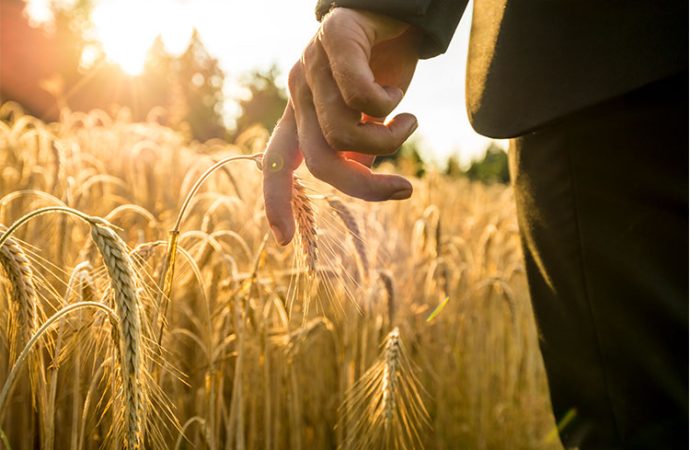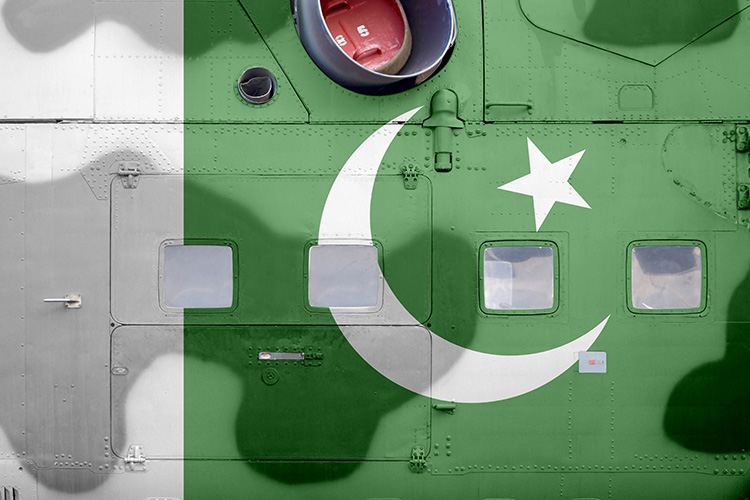Author Recent Posts Sumayya Shafique Latest posts by Sumayya Shafique (see all) Pakistan and TTA-Why expectations of Pakistan were not met? – August 25, 2023 Scope of Caretaker government and recent developments – August 10, 2023 Ensuring food security of Pakistan through agricultural mechanization and modernization – August 10, 2023
Pakistan needs to modernize and mechanize its agricultural industry, drastically, in order to fulfill the demands of its expanding population. Pakistan, a nation primarily dependent on agriculture, as a significant source of income and employment, faces a serious issue with regard to food security. Adopting cutting-edge techniques and technologies can considerably increase agricultural output, efficacy, and sustainability, which ultimately improves the nation’s food security. The potential advantages and plans for agricultural modernization and mechanization in Pakistan will be discussed in this article.
The unusual spike in food costs toward the end of the first decade of the twenty-first century aroused concerns about food security, especially for the developing countries. Pakistan is no different. to accomplish agricultural growth that is both pro-poor and food secure. Instead of focusing solely on obtaining wheat-based security, Pakistan needs to take a comprehensive approach to increase the productivity of other foods. Additionally, in order for farm households to profit from the adoption of new agricultural technologies, they must be able to finance expensive inputs and diversify their sources of income through the best possible employment in both the farm and non-farm sectors.
In Pakistan, food security is a crucial aspect of sustainable development. With over 220 million people and a sizable percentage of them residing in rural areas, ensuring enough and affordable access to food is essential for stability in society and economic development. A significant proportion of the population relies heavily on agriculture as their primary source of income and a substantial contributor to the GDP of the nation. But the industry struggles with issues including irrigation inadequacies, out-of-date farming methods, and poor infrastructure, which results in inadequate harvests and food insecurity.
During the past 60 years, the total area under cultivation has only grown by 40%, although the population has increased by more than 4 times, leading to the creation of megacities and increased strain on arable land. Despite a five-fold rise in output of wheat, a significant food crop, the nation still imports only a small amount of wheat. To close the food supply-demand gap, enormous efforts are required in both population control and technological advancements. In the process of development, food security and economic expansion interact, reinforce, and strengthen each other. Food security is therefore essential for the nation’s economic development.
Recently, Special Investment Facilitation Council (SIFC) has announced an initiative through which four million jobs will be created by the Green Pakistan Initiative, that will spark a second agricultural revolution in the country. Speaking at a seminar on agriculture and food security, Prime Minister Shehbaz Sharif declared that agriculture is the nation’s backbone and that farmers, who toiled tirelessly to feed millions of people, would be remembered in history as Pakistan’s builders. It shows that incumbent government has special focus on agriculture sector to ensure food security of the country.
Using contemporary machinery and equipment to enhance or replace manual labor in farming activities is known as agricultural mechanization. Pakistan can increase efficiency by encouraging mechanization because contemporary technology allows for quicker and more efficient manufacturing, labor savings, and resource optimization through the use of Advanced equipment. Crop diversification also makes it simpler for farmers to do so, which improves risk management and expands their prospects for income.
In order to attain sustainable agriculture in Pakistan, modernizing the whole sector includes the adoption of cutting-edge technologies, creative methods, and increased knowledge sharing. Precision farming, which makes use of cutting-edge technologies like the Global Positioning System (GPS), drones, and remote sensing to maximize resource utilization and reduce waste, can improve Pakistan’s agricultural sector. Additionally, farmers can adapt to the changing climate with the help of climate resilience, knowledge sharing, poor-harvest management, sustainable farming methods, the introduction of new crop varieties across the nation, and the accessibility of food on the market to ensure long-term productivity.
It is crucial for Government of Pakistan to provide financial incentives, subsidies, and policy support to farmers who use new agricultural equipment, to promote the successful mechanization and modernization of agriculture. To introduce climate-resilient crops, disease-resistant varieties, and cutting-edge technologies suited to Pakistan’s agro-climatic conditions, investment in agricultural research and development is essential. It is important to set up training sessions and workshops to teach farmers how to use contemporary equipment. Public-private partnerships are also essential since they may bring in knowledge, financing, and technology to hasten agricultural modernization.
In year 2022, devastating floods in the country disrupted the food security of the country reinforced by high inflation not only due to domestic reasons but also international. Pakistan already faces various challenges in maintaining food security due to its rapidly growing population, water scarcity, and climate change impacts. The Russia Ukraine war-induced disruptions have further exacerbated these vulnerabilities, leaving the country more susceptible to food crises. By keeping in mind the altering global scenarios , need for strengthening of agricultural sector for minimal reliance on grain import is necessary.
Modernization and mechanization of agriculture are imperative steps to ensure Pakistan’s food security. The nation can considerably increase agricultural output, resource efficiency, and overall economic growth by implementing cutting-edge technologies, precision farming methods, and sustainable practices. For Pakistan to have a more sustainable and secure food future, the government, private sector, and agricultural stakeholders must collaborate to put comprehensive initiatives into action. Pakistan can create the conditions for a wealthy and food-secure country by placing a high priority on agricultural development.
- Pakistan and TTA-Why expectations of Pakistan were not met? - August 25, 2023
- Scope of Caretaker government and recent developments - August 10, 2023
- Ensuring food security of Pakistan through agricultural mechanization and modernization - August 10, 2023












Leave a Comment
Your email address will not be published. Required fields are marked with *